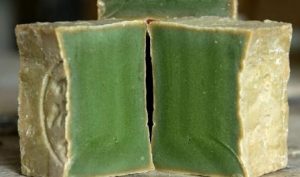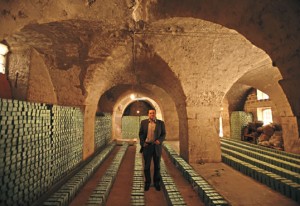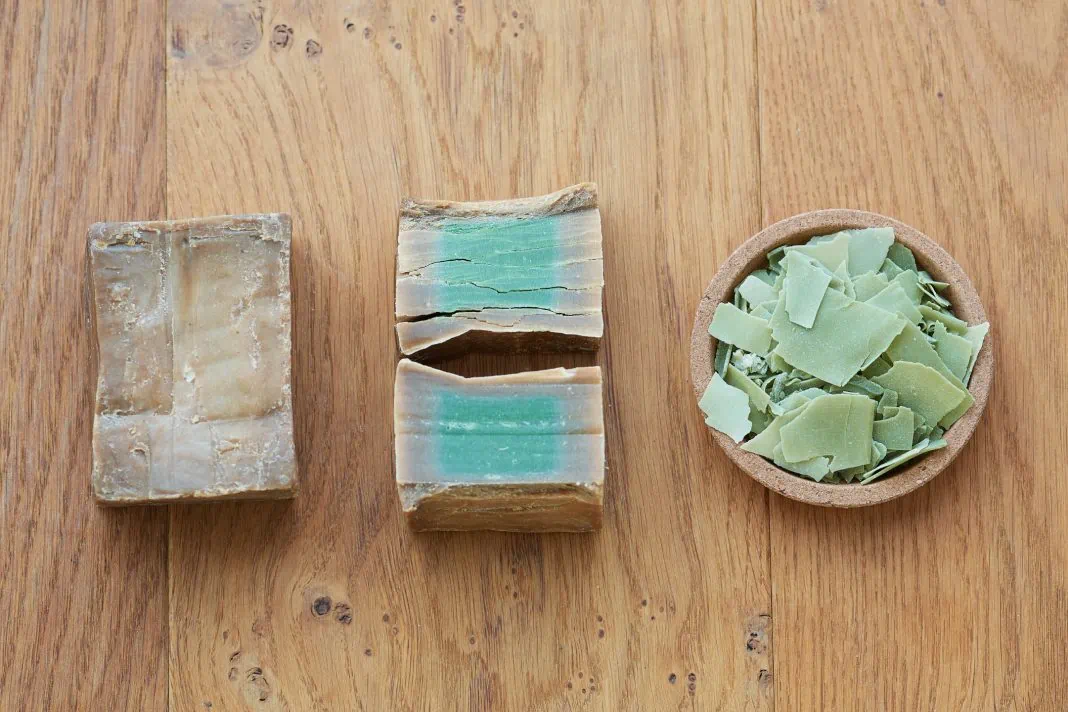There are so many personal hygiene products to choose from we tend to forget the natural alternatives that humanity has relied on for hundreds and even thousands of years, such as Aleppo soap.
While your regular shower gel or soap may have an amazing fragrance, an irresistible creamy consistency and produce lots of foam, it’s also full of chemicals and usually made with cheap oils that provide little or no benefits to your skin.

What is Aleppo soap?
Aleppo soap is a natural hard soap made using an old traditional method and has no colorants, preservatives, or cheap fillers.
This soap’s ingredients are olive oil, laurel bay oil, sodium hydroxide (also known as lye), and water.
The origin of Aleppo soap cannot be pinpointed to a specific time, but it is said to be the oldest soap in the world. While this could be an overstatement, it does originate from the Levant region (Aleppo being one of the most important cities there).
The traditional way of manufacturing this soap used the “hot process” method, but the modern version uses a “cold process” method. Today, manufacturers add other ingredients to this traditional soap, such as essential oils, plant-based oils, clay, various salts, and other natural ingredients that are good for the skin or add a pleasant fragrance.
The pure Aleppo soap looks and smells like the classic homemade soaps, with a scent of laurel, which can vary in intensity depending on the concentration of the laurel bay essential oil used in the soap-making process. Typically it ranges between 2 – 30%, which also determines the final cost of the soap. Its color also depends on the concentration of laurel oil. If the soap is a pale yellow or ivory, it has a low amount of laurel oil; if the color is more golden or brown, it is rich in laurel oil. However, the inside of the soap remains green, and you can see that for yourself if you buy one and cut it in half.

After the mass of soap is left to cool down and harden for a day, workers cut it into cubes, stamp them with the manufacturer’s brand name, place them on racks in special underground chambers, and leave them to age for several months up to a year.
During the aging process, any alkaline content that didn’t react during saponification slowly breaks down in contact with air, and water content gradually decreases, making the soap bars harder.
Aleppo soap benefits and uses
Aleppo soap can be used by anyone looking for a natural, chemical-free soap, but it can also help in various skin problems. The olive oil used to make this soap gives it a creamy consistency and makes it especially gentle and moisturizing.
Virgin olive oil contains valuable antioxidants, helps restore your skin’s natural balance, it has a mild anti-inflammatory effect reducing redness and irritation, and it is usually well tolerated even by the most sensitive skin types.
Laurel bay oil is what makes Aleppo soap potent when it comes to healing various skin problems such as acne, eczema, psoriasis, herpes, bacterial dermatitis, fungal infections, and irritated skin, but also for scalp problems like dandruff, seborrhoeic dermatitis, and others.
Laurel bay oil can help with all these ailments because it is a natural but strong antibacterial, antiviral, and antifungal agent. Even if you’re already on a treatment prescribed by a certified healthcare practitioner, Aleppo soap can be an effective complementary remedy.
If you don’t have any particular skin problem, the laurel oil in Aleppo soap still makes it a more effective disinfectant than regular soap but it also doesn’t over-dry your skin or cause irritation. Nevertheless, it is much safer than the advertised antibacterial soaps, which contain antibiotics, and long-term use can lead to antibiotic-resistant bacteria and various health problems.
Like any regular soap, you can use Aleppo soap to wash your face and body. As a shampoo, it can be effective for oily scalp, itchy scalp, and dandruff caused by seborrhoeic dermatitis. It might not be suitable for you if you have dry hair. Some are also using it as a shaving cream and even a natural laundry detergent (you can find it as flakes). Also, you can buy Aleppo soap in liquid form or make your own. To make it at home, you have to grate a bar and pour hot water over it.
